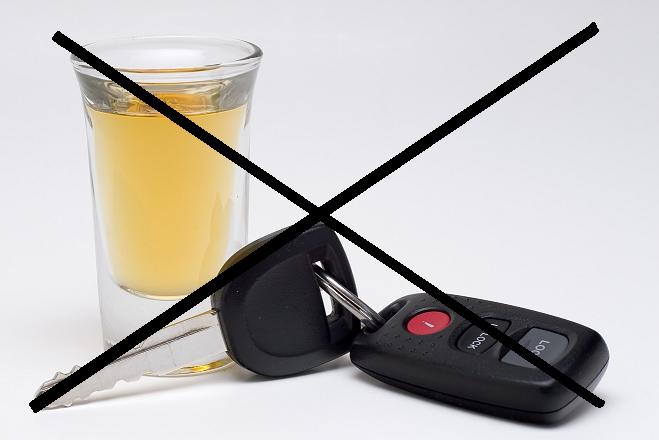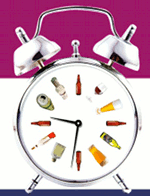
 |
|
|
DRINK DRIVE?
 As alcohol affects our reaction times, our vision and coordination, there is a legal drink drive limit, which is based on your BLOOD ALCOHOL CONCENTRATION (BAC).
As alcohol affects our reaction times, our vision and coordination, there is a legal drink drive limit, which is based on your BLOOD ALCOHOL CONCENTRATION (BAC).
What is Blood Alcohol Concentration?
The amount of alcohol in your bloodstream is called your Blood Alcohol Concentration or BAC. Your BAC depends on how much you drink. The more you drink, the higher your BAC. But there are also many other factors that affect your BAC such as your size, your weight, your gender, whether you've eaten and even how tired you are.
How is BAC measured?
BAC can be measured with a breathalyser or by analysing a sample of blood. It is measured by the number of grams of alcohol in 100ml of blood. For example, a BAC of .08, the legal limit for driving in England, Wales and Northern Ireland, means you have .08 grams of alcohol in every 100ml of blood. In Scotland the legal limit is .05.
How alcohol affects thinking distance
Alcohol’s effect on the brain slows down a person’s reaction times - they take longer to respond to hazards. So, if a cat ran in front of a car or motorbike, the delay between you seeing it and putting your foot on the brake slows down. The extra distance travelled in that time is called your ’thinking distance’. Each drink can increase the ‘thinking distance’ by 20%.
 The risk of someone being in an accident increases by:
The risk of someone being in an accident increases by:
- two times for drivers with a BAC of .05
- four times for drivers with a BAC of .08
- twenty times for drivers with a BAC of .15.
Drivers who have been drinking also underestimate the distance and speed of other vehicles on the road. Their vision is affected, slowing reaction times further. Drivers who’ve been drinking also overestimate their ability and drive more recklessly too.
Fortunately, drink drive deaths have fallen by three quarters in the UK over the last thirty years, but are still the cause of 250 deaths a year and a factor in about 10,000 accidents
Can peoples BAC vary even when they drink the same amount?
The only safe advice is to nominate a non drinking driver for the evening or to arrange to get home by taxi or public transport ... and don’t ever accept a lift from someone you suspect is over the drink drive limit. Do everything you can to persuade them not to drive – you could be saving their life or someone else’s. |
It is impossible to state categorically how many units you can consume before exceeding the BAC legal limit, as the speed that alcohol enters your blood stream will vary if you are having a drink on an empty stomach, or drinking with food slowly. Having food in your stomach does not stop you from getting drunk, but it does slow down the rate at which alcohol passes into the bloodstream. On average your body will break down one unit of alcohol per hour, and each unit will increase your BAC by 20mg (up to 30 for women). The BAC limit is 80 mg per 100ml in England, Wales and Northern Ireland. In Scotland the BAC limit is 50 mg.
Lots of different factors also affect your BAC including:
- whether you’re male or female
- if you are drinking on an empty stomach
- if you are drinking quickly
- your proportion of body fat (body fat does not absorb alcohol)
- your metabolic rate (affected by diet, digestion, fitness, emotional state, hormonal cycle, time of day, year etc).
- if you are tiredness - this will affect your concentration and absorption
- individual differences in size, weight and metabolism
- the percentage of alcohol in the drink
- the type of alcohol you are drinking (fizzy drinks are absorbed more quickly)
- the container size (you may think you’re having one drink, but how many units are you having?)
- the amount of time since your last drink (the body can only break down about one unit an hour, your BAC can still be rising because alcohol takes time to be absorbed).
The use of stimulants, such as caffeine won’t affect BAC, but may ‘mask’ the effect of alcohol, making you feel more sober than you really are.
So, the only safe advice is to nominate a non drinking driver for the evening or to arrange to get home by taxi or public transport .. and don’t ever accept a lift from someone you suspect is over the drink drive limit. Do everything you can to persuade them not to drive – you could be saving their life or someone else’s.
For more information see:
What if I'm caught over the BAC limit?
Anyone caught over the legal alcohol limit when driving will be banned from driving for at least 12 months, and fined up to £5,000. You can also be sent to prison for up to six months. Imprisonment, the period of disqualification and size of fine depend on the seriousness of the offence. Causing a serious accident or death through drink drive means up to 14 years in jail and a two year driving ban.
Never mind the law, you’d never forgive yourself if you injured someone seriously – and try getting car insurance or a new job if you’ve got a driving conviction – not easy.
Finally, If you’re caught drink driving more than once in a 10 year period, you’ll be banned for at least three years.
Travelling Abroad?
Drink-drive legislation varies across the world so always be careful if you are travelling. Most countries in the EU have a drink drive Blood Alcohol Concentration of 50mg per 100 ml blood, 30mg less than the limit of 80mg for England, Wales and Northern Ireland.
Click here for more information on BAC levels and the law relating to countries worldwide.
